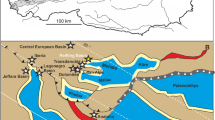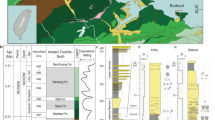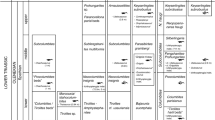Abstract
ON p. 384, vol. xxx. of NATURE, Prof. Hull published an account, furnished him by myself, of the shell deposit in the marl of the Lattakia plain. Since that time I have submitted these specimens to Mr. Etheridge, F.R.S., of the British Museum, who has kindly furnished me with their specific names, as far as they are determinable. The subjoined list fixes the geological date or succession of the deposit, which belongs to, or is of the same age or period as, the Pliocene or Crag deposits of Essex, Norfolk, and Suffolk. The fossils from the raised beaches may be of post-Pliocene.
This is a preview of subscription content, access via your institution
Access options
Subscribe to this journal
Receive 51 print issues and online access
$199.00 per year
only $3.90 per issue
Buy this article
- Purchase on Springer Link
- Instant access to full article PDF
Prices may be subject to local taxes which are calculated during checkout
Similar content being viewed by others
Author information
Authors and Affiliations
Rights and permissions
About this article
Cite this article
POST, G. On the Pliocene Deposit of Marine Shells near Lattakia, and a Similar Deposit in the Island of Zante. Nature 36, 245–246 (1887). https://doi.org/10.1038/036245f0
Issue Date:
DOI: https://doi.org/10.1038/036245f0
Comments
By submitting a comment you agree to abide by our Terms and Community Guidelines. If you find something abusive or that does not comply with our terms or guidelines please flag it as inappropriate.



